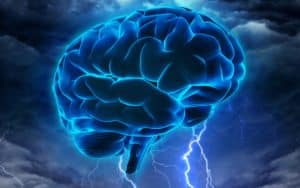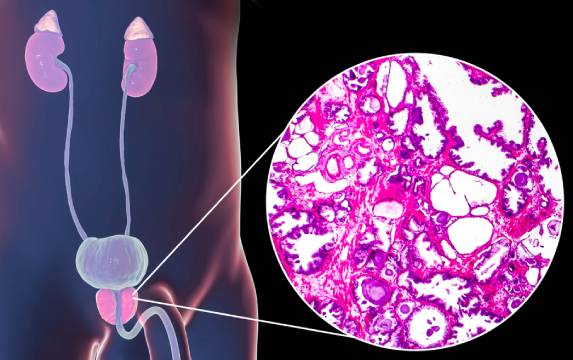We have come a long way since the historic discovery that during erection the penis fills with blood, not air or some spiritual essences as people in the Middle Ages used to think. However, only in recent years it has become clear that the brain is the most powerful sex organ and it keeps the penis under its absolute control.
It was Leonardo da Vinci who as early as 500 years ago said about the penis what still feels right for many men even today. That Renaissance scientist, artist and inventor, one in a long line of researchers who have attempted to solve the “riddle of erection”, claimed that the dissident organ has a free will of its own. This is because the penis does not obey his master’s orders even when the latter recruits all his willpower trying to erect or shrink it. Instead, the rebel erects freely the minute his master falls asleep. “The penis must be said to have its own mind”, claimed da Vinci who used to dissect male sex organs of men who had been executed by hanging, and was the first to recognize that the penis fills with blood during erection. However, in his conception that the penis has its own free will, this polymath was wrong. In fact, the complete opposite is now known to be true: the penis is under the absolute control of the central nervous system, which consists of the brain and spinal cord. Therefore, any disruption in the network of nerve pathways that connects the penis and the central nervous system might trigger erectile dysfunction.
Just Like Conducting an Orchestra – the Male Erection
Erection is a consequence of a complex physiological process, involving timing and coordination between the vascular system and psychological, neurological and hormonal mechanisms. Thy combine together to affect penile changes and its transformation from a flaccid into an erect, rigid state. This carefully orchestrated series of events has the autonomous central nervous system acing as its conductor. It comprises two sub-systems: the parasympathetic nervous system, which keeps the internal environment of the body stable during states of rest and triggers erections by stimulating the sacral nerve. The sympathetic nervous system is responsible for immediate reactions at times of stress, danger and emergency and also for inhibiting erections. Thus, even if the penis is flaccid and the man is not sexually aroused, the sympathetic nervous system actively limits blood flow to the organ, preventing an erection.
During arousal, excitatory signals can originate in the brain as a result of sight, thought, the smell of an appealing partner or otherwise by direct genital stimulation. Thereafter, brain signals pass through nerve sets along the spinal cord into the penis. There, penile excitatory nerves respond by releasing erectile-inducing neurotransmitters such as acetylcholine and the molecule nitric oxide, which are responsible for dilating the penile arteries to increased blood flow into the erectile bodies (the Corpus Cavernosum). When those are engorged with blood they compress the penile veins, ensuring that blood cannot escape – resulting in an erection.
During an erection, the penis not only receives nerve signals but also sends them through the spinal cord to the brain: it has a high density of tactile receptors and when they are activated, they send signals to the central nervous system affecting various neuronal pathways. After orgasm or when the sexual stimulation gradually subsides, the organ turns flaccid quite quickly. This happens when the sympathetic nervous system kicks in again, limiting blood flow into the penis.
Inside the Brain
Multiple brain regions are involved in the male sexual response, ranging from centers in the hindbrain that regulate basic functions such as breathing, to areas in the cerebral cortex which controls higher thought and intellect. Interestingly, there is no specific area controlling sexual function. Control is distributed throughout many areas of the brain and spinal cord. This ensures that if injury or disease destroy a specific area, the ability to achieve an erection will be maintained.
The hypothalamus is an example of a relatively small part of the brain which is responsible for critical functions, including controlling the autonomic nervous system and regulating sexual behavior. It contains a cluster of neurons which integrate stimuli from multiple brain regions, thereby helping to organize sexual behavior patterns. Similarly, during sexual arousal, the paraventricular nucleus is in the hypothalamus is responsible for releasing oxytocin – the hormone that has significant erection-inducing effects.
The Reflexive Erection
Some erections, referred to as “reflexive erections”, can be generated solely by the spinal cord without brain involvement. Information about these erections was derived from observations on World War II soldiers with spinal cord injuries. Before that, it was assumed that such injuries caused permanent erectile dysfunction, but this notion is now known to be completely wrong. Studies have shown that men with severe or complete spinal cord injury were able to achieve an erection hard enough for penetration even when their injury prevented them from carrying out other bodily functions. Researchers found that physical stimulation of the penis sends sensory signals to the erection center located between the S3 and T12 vertebrae, which enables achieving a reflexive erection without brain involvement, as long as it remains intact.
In conclusion
Gaining deep understanding of the central nervous system’s role in controlling erectile function can form the basis for new erectile dysfunction therapies. These may include novel medications that target directly nerve cells in specific brain regions, rather than the penis itself – as current medications do. They may be used in situations where for any reason nerve stimuli cannot reach the penis, including as a result of a complication of surgery to remove the prostate gland, diabetes and various neurological conditions such as Parkinson diseases, multiple sclerosis, stroke and more.
The Company hereby clarifies that the information contained on the website is for informational purposes only, and is not intended to be a substitute for professional medical and healthcare advice, and does not constitute medical advice or opinion. Always seek the advice of your physician or other qualified health provider with any medical condition or question you may have regarding a medical condition.





